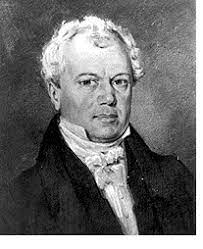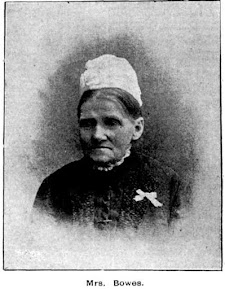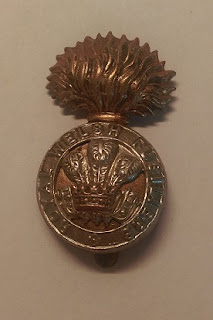A Man of Many Talents
The subject of today's blog is a multi-faceted
man whose life would seem to have been taken from the script of a movie.
Murderer, convict, surgeon, author, politician
and philanthropist - this is a story of a man who is not totally forgotten but
is deserving of more recognition.
WILLIAM BLAND
William was born in London on 5th November 1789,
the second son of Robert Bland an obstetrician, and his wife Mary. He followed
his father into the medical profession and in 1809 qualified for entry into the
Royal Navy's medical service as a "surgeon's mate". He was promoted
to Naval Surgeon in 1812 and was stationed aboard HMS Hesper on the East Indies
Station.
On 7th April 1813, Bland shot and killed Robert
Case, the Ship's Purser, in a duel on Cross Island in Bombay Harbour. A
disagreement had arisen between Case and William Randall, the ship’s First Lieutenant,
which Bland tried to stop. Case continued to make remarks about Randall in his
absence and was defended by Bland. Case abused him and Bland promptly threw a
drinking glass at him, and Case challenged him to a duel with pistols.
William and the First Lieutenant who had served
as his “second” were brought to trial. Bland mounted a defence of honour and
that he had no intention of killing the man. Both were given sentences of
transportation, Bland the minimum of seven years and Randall eight years as he
was deemed to have played a larger role in the circumstances.
Bland and Randall arrived in Hobart Town in
January 1814 and Bland then went to Sydney. As his surgical skills were greatly
needed in the colony Governor Macquarie granted his freedom almost immediately
and in September 1814 Bland was appointed as the Medical Superintendent of the
colony's lunatic asylum at Castle Hill. William Bland received a full pardon on
27 January 1815. He then began a flourishing private practice in Sydney, taking
on an apprentice the following year. In April 1817 he married Sarah Henry whose
infidelity soon after caused him to appear in court naming Richard Drake and
received a verdict against him, but Drake absconded without paying; Bland and
his wife separated, and she left the colony. After she died in 1840 Bland married
Elizabeth Smeathman in 1846.
In 1818 Bland was accused of publishing libelous
articles against Governor Macquarie and was tried and sentenced to 12 months'
imprisonment at Parramatta. Once served, Bland returned to his practice. In
1821 he began a long association with the Benevolent Society becoming a life
member in 1830 and continuing his professional work with the Society until
1863.
Benevolent Society building in Pitt Street - demolished to make way for Central Station 1901
City of Sydney Archives
His committee approved the building of a free
grammar school in 1825. The foundation stone was laid in 1830 and opened in
1835 as the Sydney College, operating until it was sold to the University of
Sydney in 1853. Bland helped in the formation of the Sydney School of Arts and
Mechanics Institute which opened in 1833. In 1839 he contributed funds and land
to the building of St John's Anglican Church Ashfield.
Former Sydney School of Arts - 275 Pitt Street
building dating from 1839 - Wikipedia
St John's Anglican Church Ashfield - author's own
William Bland became interested in local politics from the 1820's and became the secretary of the Australian Patriotic Association in 1835. Bland was an elected member of the NSW Legislative Council twice from 1843–1848 and 1849–1850 for the City of Sydney and was appointed to the NSW Legislative Council from 1858–1861. In approximately 1845, he was the subject of the oldest surviving photograph taken in Australia and held in Mitchell Library. In 1850 a Bill was introduced to found the University of Sydney with his name to be included on the list of members of the senate of the University. The stain of Bland’s criminal record meant that his name was not included.
William Bland - daguerreotype photograph @ 1845
believed to be the oldest photograph taken in Australia.
Mitchell Library, State Library of NSW
A brilliant surgeon, he performed operations for
removal of cataracts from the eyes and stones from the bladder as well as
performing groundbreaking operations. Besides designing instruments for his
intricate operations, Bland made drawings of inventions mostly about the
suppression of spontaneous combustion in wool ships and a model of his device
was entered in the International Exhibition in London in 1851 and his
"Atomic Ship" at the Crystal Palace in 1854.
On 5th November 1858, his 69th birthday, Bland was given a sum of money and a candelabra for his services to the community. An attempt to acquire an annuity for him in 1861 was defeated in the Legislative Council. Bland was, during his lifetime, a large landowner but later in 1861 he was declared a bankrupt. He had no option but to continue his practice until 1868.
William Bland contracted pneumonia and died
intestate on 21 July 1868. He was accorded a State Funeral and was buried in the
"new" Rookwood Cemetery (then known as Haslem's Creek) near where the
No. 1. Mortuary Station stood in the Anglican section.
His monument states this dedication:-
To the memory of
WILLIAM BLAND Esq., Surgeon R.N.
Who laboured long zealously and successfully
for Trial By Jury and free institutions for this Colony
and for upwards of fifty years devoted his time,
his talent and his fortitude to the services
of suffering Humanity
Born 5th November 1789
Died 21st November 1868
Aged 70 years.
This monument is erected by his friends and brother Colonists.
There are many legacies to William Bland, such as
the Shire Council, streets and parks in areas where he lived or was involved with
as well as a twelve storey building opposite Sydney Hospital built in 1960 in
order to honour Bland's medical contributions.
Many references to Bland are contained in Trove searches,
Google, State Library of NSW, medical journals etc. and most acclaim him
highly. For a brilliant man in many matters beyond the medical field, Bland led
a life anything but bland. A life full of dramas basically of his own making, he
can be classified as a man quick to temper which may have slanted people's
opinions of him. William Bland did however believe strongly in the freedom of
man, education and the right to participate in the election of Government.
What a life Bland led. A script ripe for the
small screen!
If you have any comments about this blog, please
add them below but if unable please do so at the Facebook Group page found
under
rookwoodcemeterydiscoveries
or send me a personal email at
lorainepunch@gmail.com









Comments
Post a Comment